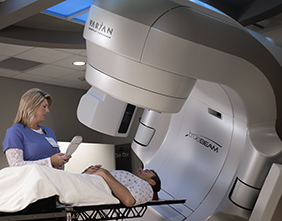Understanding Your Hearing Health
posted on: 10/5/2018 11:46:49 AM
Health & Fitness Guest Columnist
Rachael Borges, Au.D.
Lima Memorial Audiology Department
October is National Audiology Awareness Month and National Protect Your Hearing Month, dedicated to educate others on the importance of hearing health care and hearing protection.
Hearing loss is the third most common health problem in the United States. According to the National Institute on Deafness and other Communication Disorders, 36 million Americans have some degree of hearing loss.
One of the best ways to protect your hearing is to avoid exposure to loud noises. Long exposure times to these noises, specifically those over 85 decibels, can cause serious damage to your hearing. Most people associate noise exposure with industrial machinery, heavy equipment and firearms, but there are many other contributors as well. Things we take for granted, like lawnmowers, leaf / snow blowers, weed whackers, concert music, fireworks, loud iPod music, etc. all create a level of noise that damage our hearing over time. For this reason, it is important to wear hearing protection or earmuffs when exposed to any of these noises, in order to prevent permanent hearing damage or noise-induced hearing loss. Important to note is although hearing loss can be caused by noise, there are many other factors as well. These include certain medical conditions, ototoxic medications, hereditary factors and age, to name a few. For all of these reasons and more, it is also important to have your hearing checked routinely. This will establish a baseline and your hearing can then be monitored over time.

Studies have shown that on average, a person waits seven to ten years before seeking treatment for a hearing problem. Over time, untreated hearing loss can affect your ability to hear speech and process sound, due to the fact that the brain is not being stimulated the way it would with normal hearing. This can negatively impact your social and emotional well being, leading to cognitive impairments. Fortunately, if an individual is a candidate for hearing aids, the hearing aids work to provide the stimulation needed for the brain to reorganize and process sound. In turn, this could decrease the possibility of developing cognitive impairments and increase your quality of life.
There has also been a significant association found between hearing impairments and depression. Communication plays a vital role in daily social interactions and, with hearing loss, an individual may strain to hear others speak leading to misunderstandings and embarrassment. Over time, individuals with untreated hearing loss begin to avoid social situations; particularly parties and crowded environments where they tend to have the most difficulty communicating. Many older patients assume that their hearing loss is a signal they are too old for social interactions, but that is not the case. A simple hearing test and solutions will can reintroduce these individuals back into the social settings and, again improve their overall quality of life.
With new advancements in hearing aid technology, users gain increased ability to better understand speech, even in the most difficult listening environments. Appropriate management of hearing loss will improve communication with friends and family, improve quality of life and make social interactions easier by lessening cognitive listening efforts.
In addition to the new speech in noise advancements in hearing aid technology, many hearing aids are now Bluetooth compatible, allowing for hands-free cell phone calls and television streaming. In addition, rechargeable hearing aids have become increasingly popular since their initial release to the market, eliminating the hassle of disposable batteries.
Your solution to your hearing related problems should start with a visit to a licensed audiologist. An audiologist will work with you to find the hearing health solution perfect for you. With a doctoral degree from an accredited university, a state license and professional certifications, an audiologist is required to maintain the highest level of knowledge in hearing technology and testing. Audiologists can evaluate, diagnose and provide treatment options for patients with hearing loss and balance disorders.
If you or your loved ones struggle to hear or would like to learn more about hearing aid technology, please call the Lima Memorial Audiology Department for an appointment at 419-226-5070.
Originally published in The Lima News Health and Fitness section.
Website





